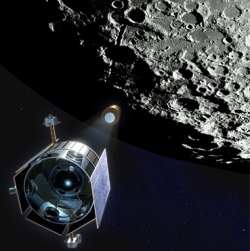
Russia plans to send probes to Jupiter and Venus, land a network of unmanned stations on Mars and ferry Russian cosmonauts to the surface of the Moon — all by 2030. That’s according to a leaked document from the country’s space agency.
The cosmically ambitious plans were submitted to the government by the Russian Federal Space Agency (Roscosmos) this month, according to a report in the Kommersant, Russia’s business-focused daily newspaper.
The document lays out a blueprint for the country’s space industry to follow in the next 18 years, up to 2030. It’s rare for Russia to set a deadline for its future space plans.
By 2020, the six-seater Angara rocket will replace the Soyuz as the spaceship of choice for launching Russian payloads. It will launch from the new Vostochny cosmodrome in the east of Russia, which will replace the outdated Baikonur facility. Construction on Vostochny started in 2011, and is scheduled for completion in 2018.
By 2030, Russia will send robots to the Moon to collect samples. The program will be punctuated with a manned Moon landing — 60 years after Neil Armstrong’s Apollo mission. Payback, perhaps, for losing out on the major leg of the U.S. and Soviet space race.
The optimistic program also lays out plans for active exploration of other planets in the solar system, and ideas for a follow-up to the International Space Station: The ISS is only funded until 2020.
Prime Minister Vladmir Putin has made his feelings about space exploration clear. Speaking in 2011 on the 50th anniversary of Yuri Gagarin’s historic flight, Putin said “Russia should not limit itself to the role of an international space ferryman. We need to increase our presence on the global space market.”
Russia’s grand plans come at the end of a dismal era of space-related failures. Its Mars-bound probe Phobos-Grunt had an almost immediate engine failure after launch, stuck around in orbit for a few months and crashed back down to Earth. It was the latest slip-up in two decades of failed missions to Mars.
Earlier, the unmanned Russian Progress supply ship M-12M prematurely shut down on its trip to the International Space Station, and promptly tumbled back for a crash landing on Earth. In the same week, a Proton vehicle put a telecommunications satellite in the wrong orbit — an embarrassing, and costly setback.
